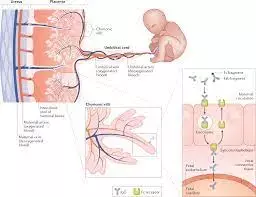- Home
- Medical news & Guidelines
- Anesthesiology
- Cardiology and CTVS
- Critical Care
- Dentistry
- Dermatology
- Diabetes and Endocrinology
- ENT
- Gastroenterology
- Medicine
- Nephrology
- Neurology
- Obstretics-Gynaecology
- Oncology
- Ophthalmology
- Orthopaedics
- Pediatrics-Neonatology
- Psychiatry
- Pulmonology
- Radiology
- Surgery
- Urology
- Laboratory Medicine
- Diet
- Nursing
- Paramedical
- Physiotherapy
- Health news
- Fact Check
- Bone Health Fact Check
- Brain Health Fact Check
- Cancer Related Fact Check
- Child Care Fact Check
- Dental and oral health fact check
- Diabetes and metabolic health fact check
- Diet and Nutrition Fact Check
- Eye and ENT Care Fact Check
- Fitness fact check
- Gut health fact check
- Heart health fact check
- Kidney health fact check
- Medical education fact check
- Men's health fact check
- Respiratory fact check
- Skin and hair care fact check
- Vaccine and Immunization fact check
- Women's health fact check
- AYUSH
- State News
- Andaman and Nicobar Islands
- Andhra Pradesh
- Arunachal Pradesh
- Assam
- Bihar
- Chandigarh
- Chattisgarh
- Dadra and Nagar Haveli
- Daman and Diu
- Delhi
- Goa
- Gujarat
- Haryana
- Himachal Pradesh
- Jammu & Kashmir
- Jharkhand
- Karnataka
- Kerala
- Ladakh
- Lakshadweep
- Madhya Pradesh
- Maharashtra
- Manipur
- Meghalaya
- Mizoram
- Nagaland
- Odisha
- Puducherry
- Punjab
- Rajasthan
- Sikkim
- Tamil Nadu
- Telangana
- Tripura
- Uttar Pradesh
- Uttrakhand
- West Bengal
- Medical Education
- Industry
First trimester Use of Hydroxychloroquine in lupus or RA may not increase risk of birth defects, finds study

First trimester Use of Hydroxychloroquine in lupus or RA not linked to higher risk of birth defects suggests a new study published in the Rheumatology.
A study was done to assess the infant risk of major congenital malformations (MCM) associated with first-trimester exposure to hydroxychloroquine (HCQ) among mothers with systemic lupus erythematosus (SLE) or rheumatoid arthritis (RA). This population-based cohort study utilised Swedish nationwide registers and included all singleton births (2006-2021) among individuals with prevalent SLE or RA in Sweden. The exposure was filling ≥1 HCQ prescription during the first trimester. The outcome was infant MCM within one year of birth. Inverse probability of treatment weighting was applied to adjust for potential confounders (e.g. maternal smoking, body mass index, pregestational diabetes, and corticosteroids). Modified Poisson regression models with robust variance estimated risk ratios and 95% confidence intervals (RR 95%CI).
Results: They included 1,007 births (453 exposed) and 2,500 births (144 exposed) in the SLE and RA cohorts, respectively. The MCM risks in the SLE overall cohort, exposed, and unexposed groups were 3.6%, 3.7%, and 3.4%, respectively. The corresponding figures in the RA cohort were 4.4%, 5.6%, and 4.3%, respectively. The adjusted RRs (95%CI) were 1.29 (0.65-2.56) in the SLE cohort, 1.32 (0.56-3.13) in the RA cohort, and 1.30 (0.76-2.23) in the pooled analysis. The adjusted risk difference (exposed vs unexposed) was small (0.9% in SLE and 1.3% in RA). Sensitivity analyses examining different exposure and outcome windows yielded similar findings. First-trimester exposure to HCQ was not associated with a significantly increased risk of MCM. HCQ's benefits may outweigh the risks in managing SLE or RA during pregnancy.
Reference:
Nguyen NV, Svenungsson E, Dominicus A, Altman M, Hellgren K, Simard JF, Arkema EV. Hydroxychloroquine in lupus or rheumatoid arthritis pregnancy and risk of major congenital malformations: a population-based cohort study. Rheumatology (Oxford). 2024 Mar 13:keae168. doi: 10.1093/rheumatology/keae168. Epub ahead of print. PMID: 38479815.
Dr. Shravani Dali has completed her BDS from Pravara institute of medical sciences, loni. Following which she extensively worked in the healthcare sector for 2+ years. She has been actively involved in writing blogs in field of health and wellness. Currently she is pursuing her Masters of public health-health administration from Tata institute of social sciences. She can be contacted at editorial@medicaldialogues.in.
Dr Kamal Kant Kohli-MBBS, DTCD- a chest specialist with more than 30 years of practice and a flair for writing clinical articles, Dr Kamal Kant Kohli joined Medical Dialogues as a Chief Editor of Medical News. Besides writing articles, as an editor, he proofreads and verifies all the medical content published on Medical Dialogues including those coming from journals, studies,medical conferences,guidelines etc. Email: drkohli@medicaldialogues.in. Contact no. 011-43720751


